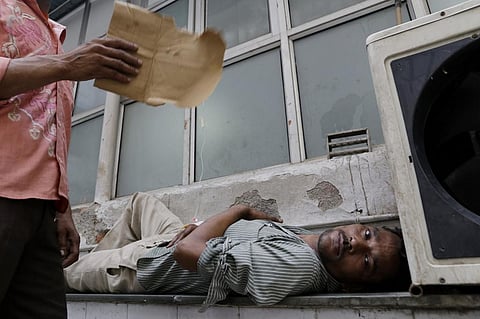

Going against the Supreme Court’s order to not make Aadhar compulsory for public welfare schemes, the Centre has decided to make the 12-digit UID number mandatory for tuberculosis patients who want to avail benefits of its scheme.
In a notification dated June 16, 2017, the government said that anyone seeking benefit under Revised National TB Control Programme (RNTCP) will have to either furnish Aadhar or apply for it. And this is for patients who are already fighting a deadly disease. Under this scheme, the government provides medicine to patients for free.
The notification reads: “An individual eligible to receive the benefit under the scheme is, hereby, required to furnish proof of possession of Aadhaar number or undergo Aadhaar authentication.” The deadline given to apply under Aadhar is August 31, 2017.
The RNTCP is a public welfare scheme under which, conditional cash assistance is also offered to the eligible TB patients, private health care providers and treatment supporters. However, not many are even aware of this benefit.
The Apex Court, in its March order, clearly said that 12-digit Aadhar number cannot be make mandatory for social welfare schemes. The court reiterated its order given on August 11, 2015, in which it restricted the use of Aadhaar to transfer of cooking gas subsidy and other public distribution systems, including Mahatma Gandhi National Rural Employment Guarantee Act (MGNREGA) and Employment Pension Scheme.
Most TB patients hail from migrant families, for whom, survival is the biggest challenge. They often don’t have resources or knowledge at their disposal to prepare documents like Aadhaar cards. While the government’s RNTCP intends to universalise the access to TB care with early diagnosis and regular treatment completion, the notification defeats the idea by discriminating between patients with and without Aadhaar cards.
India has been the biggest victim this deadly disease where more than 4.8 million new cases occur every year, according to the Global TB report 2016. Not only this, it also leads in drug-resistant TB cases. The government plans to eliminate TB from the country by 2025.